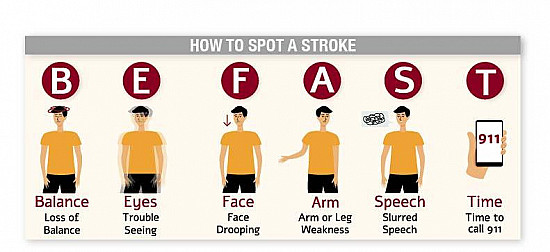Dyslexia: Tools and supports for this learning disability
- Reviewed by Stephanie Collier, MD, MPH, Contributor; Editorial Advisory Board Member, Harvard Health Publishing

Some people easily learn to read, but others struggle. One common reason is dyslexia.
While dyslexia can make reading more challenging, it doesn't have to be a barrier to lifelong learning.
What is dyslexia?
Dyslexia is a type of learning and reading disability. It has nothing to do with how smart you are. People with dyslexia simply have brain differences that make it harder for them to process written words. They have trouble understanding the connection between letters, or groups of letters, and sounds. It is more difficult for someone with dyslexia to translate printed words into spoken words, and to understand and remember something they have read.
What causes dyslexia?
Dyslexia has a genetic component and often runs in families. Other risk factors include low birthweight, premature birth, and possibly fetal exposure to certain medications or substances. About 5% to 10% of children are estimated to have dyslexia.
The brains of people with dyslexia work slightly differently than those without the condition. The left side of the brain is wired in a way that makes it harder to process written language.
Signs and symptoms of dyslexia
Dyslexia symptoms look different at different ages and stages of development.
Preschool age
Children this age may struggle to:
- learn nursery rhymes and play rhyming games
- pronounce words
- learn and remember letter names
- call items by their right name
Grades K-2
Kids may find it hard to:
- learn letters
- confuse similar-looking letters, like b and d, or p and q
- read familiar words
- spell
Grades 3-5
At this age, children may:
- struggle with sounding out new words
- have trouble recognizing sight, or common, words
- reverse letters
- have poor spelling
- avoid reading
Teens and adults
People this age with undiagnosed dyslexia may find that they:
- read and write very slowly
- confuse words that look similar, like cat and cot
- find it hard to skim text (they may need to read something at least twice to understand it)
- have trouble with focus and concentration
- find it difficult to stay organized.
Other conditions that commonly co-occur in individuals with dyslexia include attention deficit hyperactivity disorder (ADHD), anxiety, and depression.
How is dyslexia diagnosed?
There's no definitive test used to diagnose dyslexia. Children are typically given a reading evaluation by an expert in reading or education. The evaluation can be done through the local school system, or privately. Your pediatrician may be able to provide a referral.
Adults may be evaluated for dyslexia by qualified professionals including neuropsychologists, clinical psychologists, and educational psychologists.
Supporting children with dyslexia
Kids with dyslexia can learn to read — and read well. But they do require extra support to get there.
If your child has been diagnosed with dyslexia and is in public school, you should request an Individualized Education Program (IEP). An IEP is a formal plan under the Individuals with Disabilities Education Act (IDEA) that provides specialized education and support services. With an IEP, your child can receive individualized instruction from a reading specialist to help your child catch up to read at grade level. Your child may also qualify for accommodations such as assistive technology and extended time for assignments and tests.
In addition, Section 504 is a part of a law known as the 1973 Rehabilitation Act that prohibits discrimination against people with disabilities (including dyslexia) in programs, such as public schools, that receive federal financial assistance. Section 504 ensures that a student with a disability such as dyslexia receives accommodations and has equal access to education.
There's debate over what types of reading interventions work best for children with dyslexia. Research suggests that many different types of programs work, as long as they provide step-by-step reading and writing instruction. A structured literacy approach to reading instruction is considered the gold standard treatment for dyslexia.
At home, read both to and with your child every day. It will reinforce skills they learn at school and expand their vocabulary, which helps with reading, too.
Programs and tools for adults with dyslexia
Dyslexia doesn't disappear once you become an adult. The same challenges you faced as a child and teen follow you into adulthood. Under the Americans with Disabilities Act (ADA), a person with dyslexia has the right to request reasonable work accommodations. This could include assistive technology such as text reading and speech recognition systems, portable keyboards that check spelling and grammar, and reading pens (portable devices that scan text and read it aloud).
If you were diagnosed with dyslexia later in life, you can still benefit from reading instruction.
In addition to reading challenges, adults with dyslexia may be more forgetful and may struggle with time management. Strategies that rely on technology, like mobile phone reminders, can help. So can low-tech tools like pen-and-paper lists.
Resources for dyslexia support
The following resources provide information and support for children and adults with dyslexia.
International Dyslexia Association. A nonprofit education and advocacy organization, IDA offers general information about dyslexia, a list of providers nationwide who help diagnose and treat it, links to schools across the country that specialize in learning disabilities like dyslexia, and support groups.
Decoding Dyslexia. A network of parent-led grassroots movements across the country that advocates for more resources and support for students with dyslexia in the public school system.
Reading Rockets. A national public media literacy initiative that offers research-based strategies to help all kids, including those with dyslexia, become skilled readers.
National Center on Improving Literacy (NCIL). A partnership among literacy experts and university researchers to increase access to evidence-based approaches to screen, identify, and teach students with literacy-related disabilities such as dyslexia.
Understood. A nonprofit that provides support for people with learning disabilities, including dyslexia. It also offers information on school and workplace supports people with dyslexia may need.
About the Author

Hallie Levine, Health Writer
About the Reviewer

Stephanie Collier, MD, MPH, Contributor; Editorial Advisory Board Member, Harvard Health Publishing
Disclaimer:
As a service to our readers, Harvard Health Publishing provides access to our library of archived content. Please note the date of last review or update on all articles.
No content on this site, regardless of date, should ever be used as a substitute for direct medical advice from your doctor or other qualified clinician.















